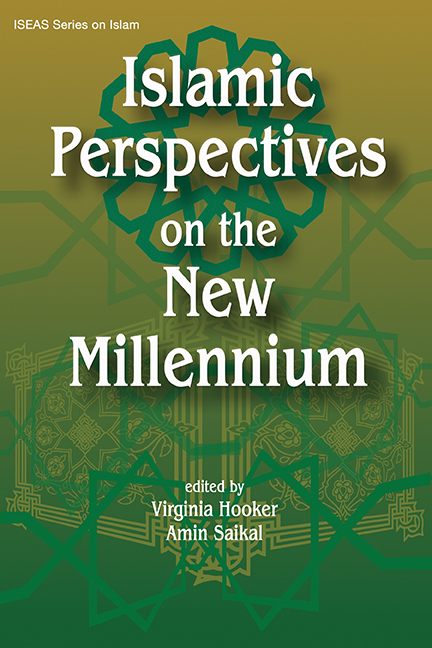Book contents
- Frontmatter
- Contents
- Acknowledgements
- Contributors
- 1 Islamic Perspectives on the New Millennium
- The New World Order
- The New Age
- The Economy
- The Nation-State
- Muslim Women
- 10 Muslim Women and Human Rights in the Middle East and South Asia: Occupying Different Spaces
- 11 Islam, Gender, and Politics in Indonesia
- Law and Knowledge
- Conclusion
- Glossary
- Index of Names
- Index of Subjects
10 - Muslim Women and Human Rights in the Middle East and South Asia: Occupying Different Spaces
from Muslim Women
Published online by Cambridge University Press: 21 October 2015
- Frontmatter
- Contents
- Acknowledgements
- Contributors
- 1 Islamic Perspectives on the New Millennium
- The New World Order
- The New Age
- The Economy
- The Nation-State
- Muslim Women
- 10 Muslim Women and Human Rights in the Middle East and South Asia: Occupying Different Spaces
- 11 Islam, Gender, and Politics in Indonesia
- Law and Knowledge
- Conclusion
- Glossary
- Index of Names
- Index of Subjects
Summary
Social movements are not new phenomena. Human beings have long organized themselves into non-hierarchical groups that bypass political structures to bring about desired change. In the early nineteenth century, a number of religious, feminist, nationalist, and class movements attempted to change the prevailing conditions and notions of social organization. This process gained momentum in the twentieth century, with the number and activities of such movements markedly increasing by the 1960s. Since then, the notion of social movements has gradually evolved. “New” or contemporary social movements are seen as distinct from political parties and interest groups. These movements are characterized by loose and often non-hierarchical networks of disparate individuals, groups, or organizations that focus on specific issues or activities. The process creates or modifies the “collective or shared identity” that aims at bringing about or opposing social change at a systemic or non-systemic level. By their very nature, these movements are oriented more towards civil society than the state, and they have an inherent suspicion of bureaucracies. Nevertheless, they can still engage with state structures, and their influence can be local, national, regional, or international. There is little exclusivity in membership: being a member of one movement does not exclude participation in several other movements.
Globalization and easier communication across national boundaries have enabled social movements to proliferate. Such movements focus on many issues: for instance, women's rights, the rights of the child, the rights of indigenous people, environmental issues, and sustainable development. Membership changes with time, as does the significance that is attached to the “agenda of social change” by members. It is obvious that these movements have emerged as significant international actors: non-governmental organizations (NGOs) have been given observer status at a number of international forums, including the United Nations. Women in many countries actively participate in these movements. However, the question is whether Muslim women from the Middle East and South Asia are also participating in such movements or are silent observers. This chapter will answer that question with respect to the participation of Muslim women in human rights movements.
- Type
- Chapter
- Information
- Islamic Perspectives on the New Millennium , pp. 161 - 182Publisher: ISEAS–Yusof Ishak InstitutePrint publication year: 2004



